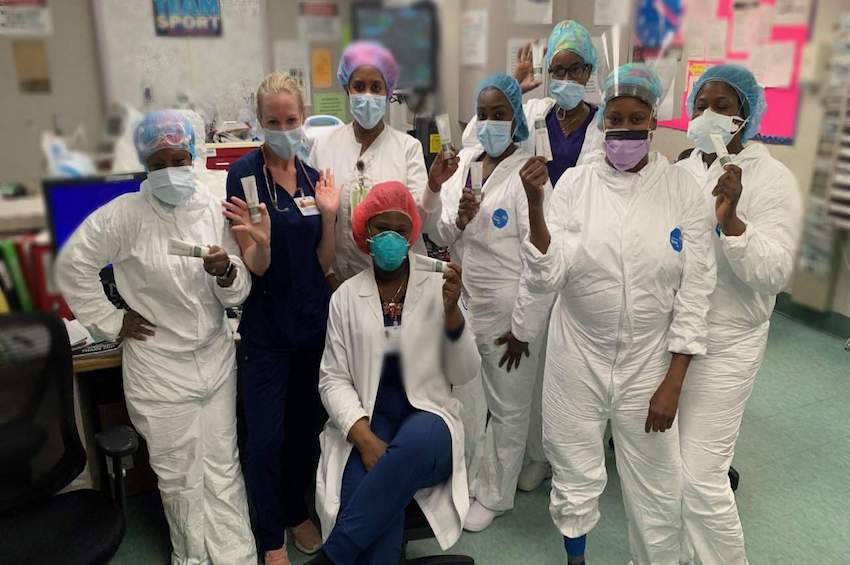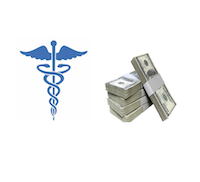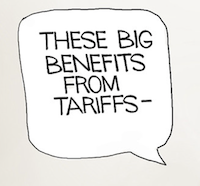As Labor Day 2020 approaches I am thinking about the words “essential workers” that have been in the news so regularly since the onset of COVID-19. Labor Day is the time every year when our nation is invited to think about the men and women whose work and productivity serve as the engine of our national economy. However, Labor Day 2020 brings with it a special meaning, because it helps the nation focus on those workers whose efforts, often at great personal risk to themselves have served this country during this ongoing pandemic.
Who are the “essential workers” that deserve our thanks this year? Of course, any list of “essential workers” would include the medical professionals who have been treating COVID-19 patients in over-crowded and sometimes under-resourced emergency rooms and nursing homes across the country for the last six months. They were often the only ones who could be present when our loved ones breathed their last breath before they succumbed to the virus. How sad it is that many of those medical professionals contracted the virus themselves while attending to the needs of their patients. Sadder still, many more will die so long as we fail to respond appropriately to the danger this virus still poses to our nation.
What has become clear in recent months is that medical professionals are not the only “essential workers” in our fight against COVID-19. They may be getting most of the attention, but they are not the only ones risking their lives to keep our nation moving forward. This Labor Day let us be sure to salute all our “essential workers.” That would include other hospital workers, the ones who clean the rooms between patients, the ones who prepare meals for patients and staff alike, and the ones who do the demanding work of patient intake and transport. Let us thank the EMT workers and firefighters who have been bringing people to the hospital often while those people were in distressed conditions. Swift and careful transport from home to hospital has saved many lives from the virus.
Let us thank the funeral homes and cemeteries and their staffs that have been overwhelmed by this virus. Over one thousand persons per day have been dying from COVID-19 for the last three months. Bodies had to be claimed, families had to be consoled, funeral services involving social distancing had to be planned, and graves had to be prepared at a rate not seen in this country since the flu pandemic of 1918. Over 185,000 people have died in this country in the last six months. That is more than three times the number of American casualties during the fourteen years of the Vietnam War. All of these people have proven to be “essential workers” in 2020.
Then there are the people who had to go to work in other areas of our economy just to keep the country going. While many people could work from home in accordance with stay-at-home guidance from public health officials, some people simply could not do their jobs from home. They had to leave home while many of us “sheltered in place.” For them, it was either go to work in the face of the virus, or lose their jobs, their homes, their health care, and their future financial security. Bus drivers, truck drivers, food delivery drivers, farm workers, bank tellers, construction workers, and mail carriers could not work from home. Small business owners who were already facing a challenging economy could not operate their restaurants, dry cleaners, retail stores, and other service-related jobs from home. The home health care workers who need two or three jobs just to survive could not take care of their sick and elderly patients while staying in the safety of their own homes. And none of these “essential workers” could be sure that at the end of the day they were not bringing COVID-19 back home to infect their own families.
Now the nation faces the prospect of reopening schools in areas where the virus is still spreading. Surely our teachers, school administrators, school bus drivers, custodians, cafeteria workers, coaches and counselors must be counted among our nation’s “essential workers.” Will we provide all these workers with the Personal Protection Equipment they need to remain safe on the job? Will we provide them with the wages and the safe working conditions they all deserve? Or will we just turn Labor Day into another nation-wide super-spreader of COVID-19 fueled by people who refuse to wear masks or engage in social distancing? People who are often following the example of the President of the United States.
If we are not careful this Labor Day, we will end up making life and work harder for all our “essential workers.”
- • •• • •
The Rev. Marvin A. McMickle, pastor emeritus of Antioch Baptist Church in Cleveland, retired last year as president of Colgate Rochester Crozer Divinity School in Rochester, New York, where he had served since 2011.














